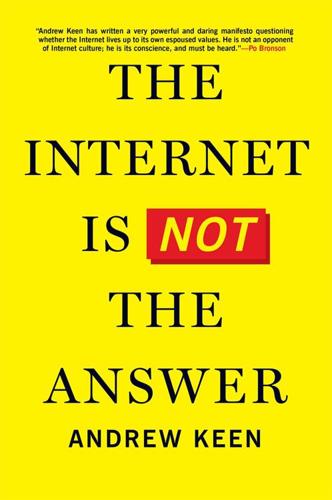
The Internet Is Not the Answer
by
Andrew Keen
Published 5 Jan 2015
The Internet Is Not the Answer Also by Andrew Keen The Cult of the Amateur: How Today’s Internet Is Killing Our Culture Digital Vertigo: How Today’s Online Social Revolution Is Dividing, Diminishing, and Disorienting Us The Internet Is Not the Answer Andrew Keen Atlantic Monthly Press New York Copyright © 2015 by Andrew Keen Jacket design by Christopher Moisan Author photograph by Michael Amsler All rights reserved. No part of this book may be reproduced in any form or by any electronic or mechanical means, including information storage and retrieval systems, without permission in writing from the publisher, except by a reviewer, who may quote brief passages in a review.
…
ref= eastmankodakcompany&_r=0&pagewanted=print; online.wsj.com/article/AP6b640447eb8a41418c01e4110720d4e4.html. 47 Larson, “Kodak Reorganization Approval Affirms Move from Cameras.” 48 For an introduction to the Eastman House collection see Photography from 1839 to Today: George Eastman House, Rochester, NY (London: Taschen, 1999). 49 Greg Narain, “The New Kodak Moment: Why Storytelling Is Harder Than Ever,” Briansolis.com, November 21, 2013. 50 Andrew Keen, The Cult of the Amateur: How Today’s Internet Is Killing Our Culture, p. 115. 51 Ibid. 52 Neate, “Kodak Falls in the Creative Destruction of the Digital Age.” 53 Ibid. The comment was made by Robert Burley, a professor of photography at Ryerson University in Toronto, whose work on the collapse of film photography, The Disappearance of Darkness, was shown at the National Gallery of Canada in late 2013: gallery.ca/en/see/exhibitions/upcoming/details/robert-burley-disappearance-of-darkness-5324. 54 John Naughton, “Could Kodak’s Demise Have Been Averted?
…
See, for example, his latest book: Future Perfect: The Case for Progress in a Networked Age (New York: Riverhead, 2012). 36 Tom Standage, Writing on the Wall: Social Media—The First 2,000 Years (New York: Bloomsbury, 2013). 37 Ibid., epilogue, pp. 240–51. 38 Williams, “The Agony of Instagram.” 39 Rhiannon Lucy Coslett and Holly Baxter, “Smug Shots and Selfies: The Rise of Internet Self-Obsession,” Guardian, December 6, 2013. 40 Nicholas Carr, “Is Google Making Us Stupid?,” Atlantic, July/August 2008. Also see Nicholas Carr, The Shallows: What the Internet Is Doing to Our Brains (New York; Norton, 2011). 41 Eli Pariser, The Filter Bubble: What the Internet Is Hiding From You (Penguin, 2011). See also my June 2011 TechCrunchTV interview with Eli Pariser: Andrew Keen, “Keen On . . . Eli Pariser: Have Progressives Lost Faith in the Internet?,” TechCrunch, June 15, 2011, techcrunch.com/2011/06/15/keen-on-eli-pariser-have-progressives-lost-faith-in-the-internet-tctv. 42 Claire Carter, “Global Village of Technology a Myth as Study Shows Most Online Communication Limited to 100-Mile Radius,” BBC, December 18, 2013; Claire Cain Miller, “How Social Media Silences Debate,” New York Times, August 26, 2014. 43 Josh Constine, “The Data Factory—How Your Free Labor Lets Tech Giants Grow the Wealth Gap.” 44 Derek Thompson, “Google’s CEO: ‘The Laws Are Written by Lobbyists,’” Atlantic, October 1, 2010. 45 James Surowiecki, “Gross Domestic Freebie,” New Yorker, November 25, 2013. 46 Monica Anderson, “At Newspapers, Photographers Feel the Brunt of Job Cuts,” Pew Research Center, November 11, 2013. 47 Robert Reich, “Robert Reich: WhatsApp Is Everything Wrong with the U.S.
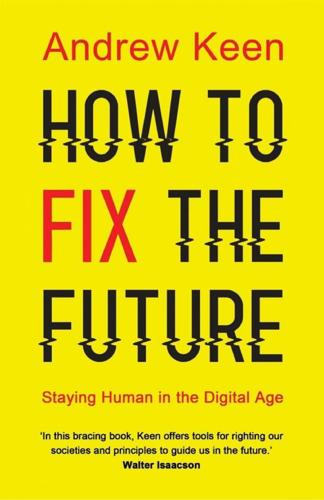
How to Fix the Future: Staying Human in the Digital Age
by
Andrew Keen
Published 1 Mar 2018
ALSO BY ANDREW KEEN The Cult of the Amateur: How Today’s Internet Is Killing Our Culture Digital Vertigo: How Today’s Online Social Revolution Is Dividing, Diminishing, and Disorienting Us The Internet Is Not the Answer First published in hardback in the United States of America in 2018 by Atlantic Monthly Press, an imprint of Grove Atlantic, Inc. First published in hardback in Great Britain in 2018 by Atlantic Books, an imprint of Atlantic Books Ltd. Copyright © Andrew Keen, 2018 The moral right of Andrew Keen to be identified as the author of this work has been asserted by him in accordance with the Copyright, Designs and Patents Act of 1988.
…
In contrast with smart cars, the future will never be able to drive itself. None of us, not even the Antichrist of Silicon Valley, have superhuman powers. But by working together, as we’ve done throughout history, we can build a better world for our children. This book is dedicated to them. They are why the future matters. Andrew Keen Berkeley, California July 2017 INTRODUCTION WE’VE BEEN HERE BEFORE The future, it seems, is broken. We are caught between the operating systems of two quite different civilizations. Our old twentieth-century system doesn’t work anymore, but its replacement, a supposedly upgraded twenty-first-century version, isn’t functioning properly either.
…
“Digital Transformation of Industries: Demystifying Digital and Securing $100 Trillion for Society and Industry by 2025,” World Economic Forum, January 2016. 2. “System Crash,” Economist, November 12, 2017. 3. Kevin Kelly, The Inevitable: Understanding the 12 Technological Forces That Will Shape Our Future (Viking, 2016) Chapter One 1. For more on Wiener, Bush, and Licklider’s role in the creation of the internet, see Andrew Keen, The Internet Is Not the Answer (Grove Atlantic, 2015), 14–18. 2. For an excellent overview of the nineteenth-century origins of privacy, see: Jill Lepore, “The Prism: Privacy in an Age of Publicity,” New Yorker, June 24, 2013. 3. Samuel Warren and Louis Brandeis, “The Right to Privacy,” Harvard Law Review, vol. 4, no. 5, December 15, 1890. 4.
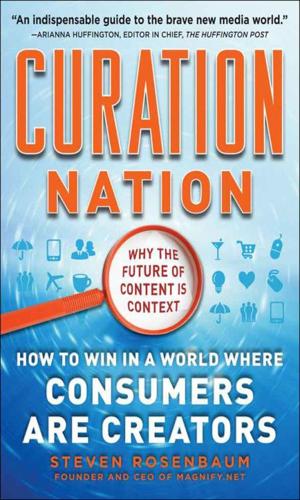
Curation Nation
by
Rosenbaum, Steven
Published 27 Jan 2011
The team at AOL is thinking hard about content and folks like Michael Silberman at New York Magazine and Renee Jordon at Readers Digest’s Taste of Home are exploring new and exciting ways to mix created, contributed, and curated content. Of course curation isn’t without its critics. Mark Cuban is perhaps the most colorful, calling all curators “vampires,” and enjoying all the media attention that Count Dracula commands. And Andrew Keen, whose rant against amateurs has given him a permanent spot on the dais, sides with Cuban, and suggests that curation is just another attempt of the liberal elite to control the conversation under cover of democracy. But there’s no shortage of those who argue to point passionately: Seth Godin is happy to poke holes in Cuban’s thesis.
…
But overall, the Web’s sharing ecosystem seems to be in place for entrepreneurs looking to build niche-content businesses. But what about the moral question? Is aggregation immoral? On that, the results seem less clear-cut. THE MORALITY OF AGGREGATION One of the most vocal critics of the emergence of Web content is Andrew Keen, author, pundit, and publishing curmudgeon. Keen’s book, The Cult of the Amateur, set the Internet world on edge. A self-described polemic, it took aim at the sheer volume of “amateur” content on the Web. Keen argued, as I have in these pages, that the sheer volume of unfiltered content left readers unable to find contextual editorial.
…
Each page collects the attention of people interested in its contents, and those people might well be interested in conversing with one another too.” And while Keen sees the amateurization of content creation as a sign of society’s drift from quality to mediocrity, Shirky sees no problem between mass participation and high-quality professional quality content. As he told Andrew Keen in a recent interview, “When I say, ‘Publishing is the new literacy,’ I don’t mean there’s no role for curation, for improving material, for editing material, for fact-checking material. I mean literally, the act of putting something out in public used to be reserved in the same way. You used to have to own a radio tower or television tower or printing press.
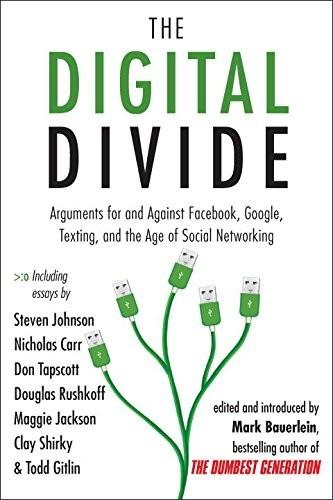
The Digital Divide: Arguments for and Against Facebook, Google, Texting, and the Age of Social Netwo Rking
by
Mark Bauerlein
Published 7 Sep 2011
If we are going to solve the world’s most pressing problems, we must put the power of the Web to work—its technologies, its business models, and perhaps most important, its philosophies of openness, collective intelligence, and transparency. And to do that, we must take the Web to another level. We can’t afford incremental evolution anymore. It’s time for the Web to engage the real world. Web meets World—that’s Web Squared. <Andrew Keen> web 2.0: the second generation of the internet has arrived and it’s worse than you think Originally published in The Weekly Standard (February 14, 2006). Writer and entrepreneur ANDREW KEEN is the author of The Cult of the Amateur: How the Internet Is Killing Our Culture (2007). Keen founded Audiocafe.com in 1995 and is currently the host of the “Keen On” show on Techcrunch.tv. His new book about the social media revolution, Digital Vertigo: An Anti-Social Manifesto, will be published by St.
…
Steven Johnson, “The Internet,” in Everything Bad Is Good for You: How Today’s Popular Culture Is Actually Making Us Smarter (2005), pp. 116–24. Copyright © 2005 by Steven Johnson. Used by permission of Riverhead Books, an imprint of Penguin Group (USA) Inc. Andrew Keen, “Web 2.0,” in The Weekly Standard (February 14, 2006). Copyright © 2006 by Andrew Keen. Reproduced by permission of the author. Katherine Mangu-Ward, “Wikipedia and Beyond,” in Reason magazine (June 2007). Copyright © 2007 by Reason Foundation. Reproduced by permission of Reason Foundation. Jakob Nielsen, “Usability of Websites for Teenagers” (January 31, 2005) and “User Skills Improving, But Only Slightly” (February 4, 2008), published in Jakob Nielsen’s Alertbox (http://www.useit.com).
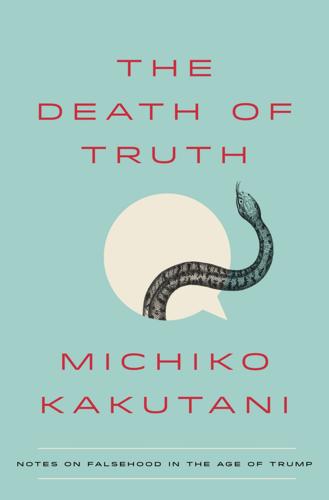
The Death of Truth: Notes on Falsehood in the Age of Trump
by
Michiko Kakutani
Published 17 Jul 2018
Combined with Trump’s subversion of longtime alliances and trade accords and his steady undermining of democratic ideals, the carelessness with which his administration treated foreign policy led to world confidence in U.S. leadership plummeting in 2017 to a new low of 30 percent (below China and just above Russia), according to a Gallup poll. In some respects, the Trump White House’s disdain for expertise and experience reflected larger attitudes percolating through American society. In his 2007 book, The Cult of the Amateur, the Silicon Valley entrepreneur Andrew Keen warned that the internet not only had democratized information beyond people’s wildest imaginings but also was replacing genuine knowledge with “the wisdom of the crowd,” dangerously blurring the lines between fact and opinion, informed argument and blustering speculation. A decade later, the scholar Tom Nichols wrote in The Death of Expertise that a willful hostility toward established knowledge had emerged on both the right and the left, with people aggressively arguing that “every opinion on any matter is as good as every other.”
…
And 83 percent of Americans: Harper Neidig, “Poll: 83 Percent of Voters Support Keeping FCC’s Net Neutrality Rules,” Hill, Dec. 12, 2017; Cecilia Kang, “F.C.C. Repeals Net Neutrality Rules,” New York Times, Dec. 14, 2017. “addiction to infotainment”: Susan Jacoby, The Age of American Unreason (New York: Pantheon, 2008), 307; Farhad Manjoo, True Enough: Learning to Live in a Post-Fact Society (Hoboken, N.J.: Wiley, 2008); Andrew Keen, The Cult of the Amateur: How Today’s Internet Is Killing Our Culture (New York: Doubleday, 2007). “the popular equation of intellectualism”: Jacoby, Age of American Unreason, xviii. “does a poor job of teaching”: Ibid., 307. “the persistent and sustained reliance”: Al Gore, The Assault on Reason (New York: Penguin Press, 2007), 1.
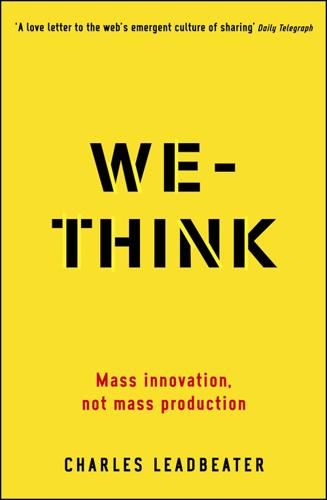
We-Think: Mass Innovation, Not Mass Production
by
Charles Leadbeater
Published 9 Dec 2010
WE-THINK ‘We-Think is a riveting guide to a new world in which a whole series of core assumptions are being overturned by innovations on the web. Leadbeater draws a series of remarkable conclusions’ Matthew D’Ancona, Spectator ‘An important book, even for sceptics like me. We-Think is inspiring in its analysis, I urge you to read it’ Andrew Keen, Independent ‘I was gripped. The book’s theme is as big and as bold as it gets … should be compulsory reading for all who seek to understand the driving force of this century’ Management Today ‘Helps readers to frame some of the important questions for the coming decade’ Director CHARLES LEADBEATER is one of the world’s leading authorities on innovation and creativity in organisations.
…
We have another fifty years of change of this kind to come and the scale of the upheavals may be even greater as the technology becomes widely adopted and gains momentum. A third small but vociferous group are people who say the web is already having a big impact on society and it is mainly bad for us. The chief proponents of this view are the polemicist Andrew Keen in his book The Cult of the Amateur, Nicholas Carr in his thoughtful The Big Switch, Larry Sanger, one of the co-creators of Wikipedia and the brain scientist Susan Greenfield. These critics worry the web is uprooting the authority of experts, professionals and institutions which help us to sort truth from falsehood, knowledge from supposition, fact from gossip.
…
They instead go for low-cost solutions such as Grameen and M-PESA that mobilise participants in their millions. Will We-Think be good for equality? Yes. Freedom In Thomas More’s Utopia, which is more a warning of the risks of living in an ideal society than a blueprint for one, there are no police because the citizens keep an eye on one another. Critics of the web such as Andrew Keen, author of the polemic Cult of the Amateur, allege that this is exactly what the web is creating: a user-generated police state, in which everyone keeps track of everyone else. In the US a social-networking site now allows people to knit together information from published sources – addresses, the electoral role, business listings – to create maps that show who lives in which house in an area and what they do.
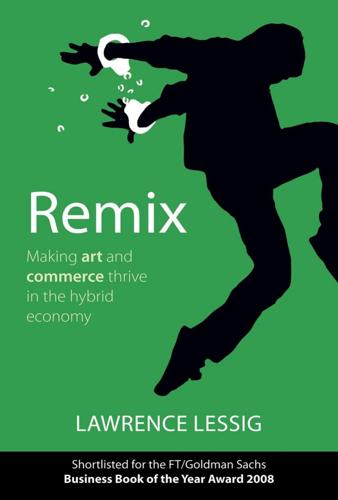
Remix: Making Art and Commerce Thrive in the Hybrid Economy
by
Lawrence Lessig
Published 2 Jan 2009
My point of course is not that we can or should simply sacrifice RO culture to enable RW. Instead, the opposite: in protecting RO culture, we shouldn’t kill off the potential for RW. Differences in Value (As in “Is It Any Good?”) In June 2007, the backlash against RW culture was born. In a short and cleverly written book titled The Cult of the Amateur, Andrew Keen, a writer and failed Internet entrepreneur, launched a fullscale attack on precisely the culture that I am praising. The core of his attack was that “amateur culture” is killing “our culture.” The growth of this kind of creativity will eventually destroy much that we think of as “good” in society.
…
As I’ve described, the original algorithm built its recommendations upon the links it found already existing on the Web; later, the algorithm also adjusted its recommendations based upon how people responded to the results Google returned. In all of these cases, the value Google creates comes from the value others have already created. Some draw a downright foolish conclusion from the fact that Google’s value gets built upon other people’s content. Andrew Keen, for example, a favorite from chapter 5, writes, “Google is a parasite; it creates no content of its own.”13 80706 i-xxiv 001-328 r4nk.indd 127 8/12/08 1:55:16 AM 128 REMI X But in the same sense you could say that all of the value in the Mona Lisa comes from the paint, that Leonardo da Vinci was just a “parasite” upon the hard work of the paint makers.
…
Free speech values should still weigh in the balance, driving regulation away from restrictive measures when alternative, nonrestrictive alternatives exist. 2. Andrew Odlyzko, “Content Is Not King,” First Monday 6 (2001), available at link #38. 3. Stewart Baker, “Exclusionary Rules,” Wall Street Journal, March 26, 2004. 4. Andrew Keen, The Cult of the Amateur (New York: Doubleday, 2007), 64. 5. Ibid., 27. 6. Ibid., 131. 7. Ibid., 15. 80706 i-xxiv 001-328 r4nk.indd 305 8/12/08 1:56:22 AM 306 NO T E S 8. I’ve enumerated some errors on my blog. See Lawrence Lessig, “Keen’s ‘The Cult of the Amateur’: BRILLIANT!” Lessig Blog, available at link #39. 9.
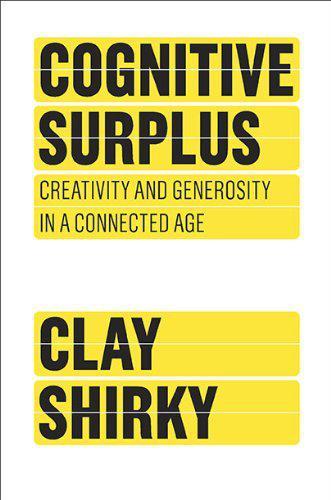
Cognitive Surplus: Creativity and Generosity in a Connected Age
by
Clay Shirky
Published 9 Jun 2010
At every turn, skeptical observers have attacked the idea that pooling our cognitive surplus could work to create anything worthwhile, or suggested that if it does work, it is a kind of cheating, because sharing at a scale that competes with older institutions is somehow wrong. Steve Ballmer of Microsoft denounced the shared production of software as communism. Robert McHenry, a former editor in chief of Encyclopedia Britannica, likened Wikipedia to a public rest room. Andrew Keen, author of The Cult of the Amateur, compared bloggers to monkeys. These complaints, self-interested though they were, echoed more broadly held beliefs. Shared, unmanaged effort might be fine for picnics and bowling leagues, but serious work is done for money, by people who work in proper organizations, with managers directing their work.
…
CHAPTER 6: Personal, Communal, Public, Civic 161 Steve Ballmer of Microsoft denounced the shared production of software: Lea Graham, “MS Ballmer: Linux Is Communism,” The Register, July 31, 2000, http://www.theregister.co.uk/2000/07/31/ms_ballmer_linux_is_communism/ (accessed January 10, 2010). 162 Robert McHenry, “The Faith-Based Encyclopedia,” Technology Commerce Society Daily, November 15, 2004, http://www.tcsdaily.com/article.aspx?id=111504A (accessed January 10, 2010). 162 compared bloggors to monkeys: Andrew Keen, The Cult of the Amatuer: How Blogs, MySpace, YouTube, and the Rest of Today’s User-Generated Media Are Destroying Our Economy, Our Culture, and Our Values (New York: Broadway Business, 2007): 2. 163 a slim volume called Experiences in Groups: W. R. Bion, Experience in Groups and Other Papers (New York: Routlege, 1991). 165 The video starts simply enough: “Couch Surfing,” Current TV, July 21, 2007, http://current.com/items/76406002_couch-surfing.htm (accessed January 10, 2010). 167 Hitchhiking is choosing to have faith in other human beings: Pippa Bacca and Siliva Moro, “Progretto,” Brides on Tour, http://bridesontour.fotoup.net/progetto.html (accessed January 10, 2010). 167 Shortly after leaving Istanbul, Pippa Bacca was abducted: Laura Kind, “A Plea for Peace in White Goes Dark,” Los Angeles Times, May 31, 2008, http://articles.latimes.com/2008/may/31/world/fg-pippa31?
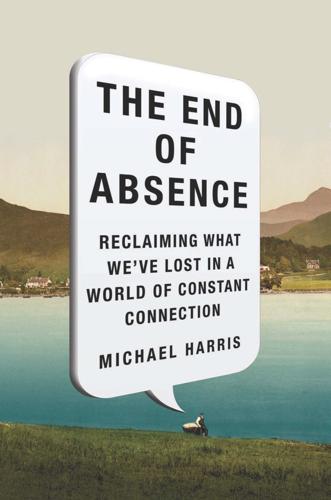
The End of Absence: Reclaiming What We've Lost in a World of Constant Connection
by
Michael Harris
Published 6 Aug 2014
Perhaps the surest sign of a Yelp review’s significance is the vehemence it can inspire: A restaurateur in Ottawa’s famous ByWard Market, for example, was found guilty of libel and sent to jail after she launched an aggressive Internet smear campaign targeted at the author of a critical review. It’s this devotion to, and obsession with, a flattened critical world—one where amateurism and self-promotion take the place of the “elite” critical voices we once relied upon—that leads writers like Andrew Keen (author of The Cult of the Amateur) to baldly state: “Today’s internet is killing our culture.” We get mob opinion instead of singular voices; crowdsourced culture. Consider the Unbound Publishing project, which democratizes the selection of which books get written. Authors pitch ideas to users, who then choose whether or not to fund the writing of said books.
…
A restaurateur in Ottawa’s famous ByWard Market: “Marisol Simoes Jailed: Co-owner of Kinki and Mambo in Ottawa Gets 90 Days for Defamation,” Huffington Post, accessed January 16, 2014, http://www.huffingtonpost.ca/2012/11/16/marisol-simoes-jailed_n_2146205.html. “Today’s internet is killing our culture”: Andrew Keen, The Cult of the Amateur (New York: Doubleday/Currency, 2007). “the filter bubble”: Eli Pariser, The Filter Bubble: How the New Personalized Web Is Changing What We Read and How We Think (New York: Penguin Press, 2011). Google announced that Google Maps: Evegny Morozov, “My Map or Yours?

Paper Knowledge: Toward a Media History of Documents
by
Lisa Gitelman
Published 26 Mar 2014
—Clay Shirky, Here Comes Everybody Try writing a book that is partly about photocopies and mimeographs, and everywhere you go someone is bound to ask, “Are you going to write about zines?” It started to bother me. Although the pressing relevance of amateur cultural production online seems clear—whether elaborated enthusiasti- cally by Henry Jenkins in Convergence Culture, for instance, or excoriated by Andrew Keen in The Cult of the Amateur—the question about zines that kept coming up wasn’t about the Internet at all, at least not explicitly.1 Asking about self-published, homemade, small-run amateur publications sounded like pure nostalgia to me, or worse. I detected pie-eyed cultural studies, trapped in celebrations of subcultural resistance as cultural critique.
…
Allegory is the meat of computational “layers” and of interface, according to Alexander R. Galloway, The Interface Effect (Cambridge: Polity, 2012), 54. A F T E R W O R D : A M AT E U R S R U S H I N 1. Henry Jenkins, Convergence Culture: Where Old and New Media Collide (New York: New York University Press, 2006); Andrew Keen, The Cult of the Amateur: How Today’s Internet Is Killing Our Culture (New York: Doubleday, 2007). Keen decries “the pajama army” (47). 2. Oscar Harpel, Harpel’s Typograph, Or Book of Specimens, Containing Useful Information and a Collection of Examples of Letterpress Job Printing, Arranged for the Assistance of Master Printers, Amateurs, Apprentices, and Others (Cincinnati, OH: 1870); Robert C.
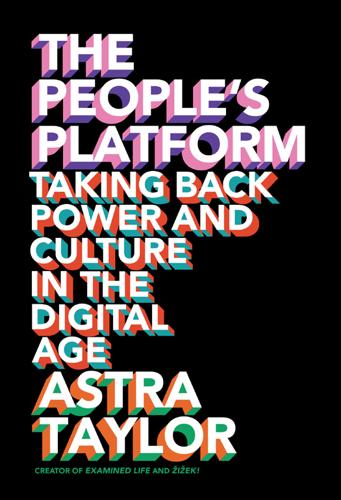
The People's Platform: Taking Back Power and Culture in the Digital Age
by
Astra Taylor
Published 4 Mar 2014
Unpaid amateurs have been likened to monkeys with typewriters, gate-crashing the cultural conversation without having been vetted by an official credentialing authority or given the approval of an established institution. “The professional is being replaced by the amateur, the lexicographer by the layperson, the Harvard professor by the unschooled populace,” according to Andrew Keen, obstinately oblivious to the failings of professionally produced mass culture he defends. The Internet is decried as a province of know-nothing narcissists motivated by a juvenile desire for fame and fortune, a virtual backwater of vulgarity and phoniness. Jaron Lanier, the technologist turned skeptic, has taken aim at what he calls “digital Maoism” and the ascendance of the “hive mind.”
…
Is transparency an unambiguous good? Should all information be free, to everyone, everywhere? The United States government had been caught off its guard and the audience was electrified by the possibilities of networked people power. Onstage a series of panelists including Arianna Huffington, Douglas Rushkoff, Esther Dyson, and Andrew Keen gave short presentations, their remarks occasionally punctuated by questions from the floor. “Information flow is corrosive to institutions, whether it’s record labels or a state ministry,” Mark Pesce, a regular commenter on technology, rapturously proclaimed from a large screen on the stage, his head beamed in over a choppy video connection.
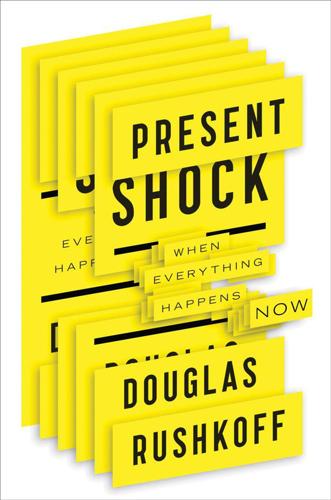
Present Shock: When Everything Happens Now
by
Douglas Rushkoff
Published 21 Mar 2013
In fact, most of us are simply making comments about the columns written by other bloggers, who are commenting on still others. Just because we all have access to blogging software doesn’t mean we should all be blogging, or that everyone’s output is as relevant as everyone else’s. Today’s most vocal critic of this trend, The Cult of the Amateur author Andrew Keen, explains, “According to a June 2006 study by the Pew Internet and American Life Project, 34 percent of the 12 million bloggers in America consider their online ‘work’ to be a form of journalism. That adds up to millions of unskilled, untrained, unpaid, unknown ‘journalists’—a thousandfold growth between 1996 and 2006—spewing their (mis)information out in the cyberworld.”
…
Lymari Morales, “In U.S., Confidence in Newspapers, TV News Remains a Rarity,” Gallup Politics, August 13, 2010, www.gallup.com/poll/142133/confidence-newspapers-news-remains-rarity.aspx. 24. Pew Research Center for the People & the Press, September 22, 2011, www.people-press.org. 25. Kasun Ubayasiri, “Internet and the Public Sphere: A Glimpse of YouTube,” Central Queensland University, 2006, and updated, on EJournalist.com, http://ejournalist.com.au. 26. Andrew Keen, The Cult of the Amateur (New York: Crown, 2007), 48. 27. Mark Lilla, “The Tea Party Jacobins,” New York Review of Books, May 27, 2010. 28. David Frum, “When Did the GOP Lose Touch with Reality?” New York, November 20, 2011. 29. Tommy Christopher, “Van Susteren Explains Why Anti-Fox Clip with Occupy Wall St.
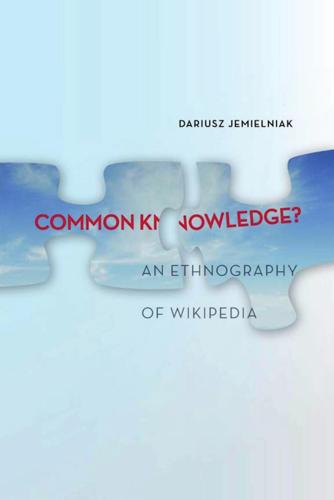
Common Knowledge?: An Ethnography of Wikipedia
by
Dariusz Jemielniak
Published 13 May 2014
I believe that these contradictions are related to the increasing bureaucratization of Wikipedia. I also think that they stem from the fact that, in the absence of formal hierarchies, the Wikipedia community substitutes local power-knowledge differentials. Wikipedia’s system of parahierarchy and its sources of social status are behind this. Andrew Keen, when criticizing the nonexpert character of Wikipedia, insists that the Wikipedia cult of the amateur leads to “less culture, less reliable news and a chaos of useless information” (2007, p. 16). While this statement is unverifiable, one thing is certain: the nonexpert or at least nonprofessional (in the sense of formally certified knowledge) character of Wikipedia is indeed its distinctive feature.
…
Hive Minds, Schmucks, Losers, and Other Misconceptions About Wikipedia Some say that the contemporary Internet in general, and Wikipedia in particular, promotes amateurs and everyday Joes—that Wikipedia’s “hive mind mentality” and “digital Maoism” suppress human intelligence and dilute individual judgments and tastes (Lanier, 2006). Andrew Keen, the author of the ominously titled The Cult of the Amateur: How Today’s Internet Is Killing Our Culture (2007), even states in an interview that no normal person would give away labor for free and anonymously and that “only schmucks would do that. Or losers” (quoted in Parvaz, 2011). As one of those schmucks or losers, and possibly both, I am certainly biased, but I must point out that this argument is rooted in the traditional point of view of attributing professionalism to formal position rather than to skill and evaluation of the actual outcome (which, as already mentioned, in the case of Wikipedia matches the commercial competi- T h e K n o w l e d g e R e v o l u t i o n a t t h e G a t e s 1 8 3 tion standards).
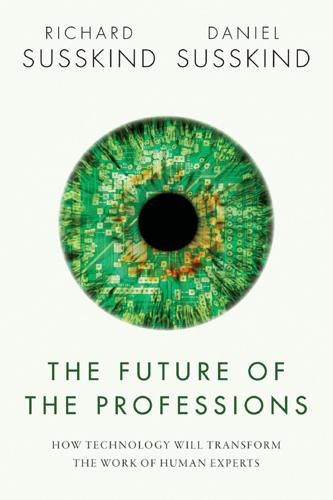
The Future of the Professions: How Technology Will Transform the Work of Human Experts
by
Richard Susskind
and
Daniel Susskind
Published 24 Aug 2015
(2008), p. 59. 86 International Telecommunications Union, ‘The World in 2014: ICT Fact and Figures’ at <http://www.itu.int/en/ITU-D/Statistics/Documents/facts/ICTFactsFigures2014-e.pdf> (accessed 29 March 2015). 87 Sara Radicati, ‘Email Statistics Report, 2014–2018’, at <http://www.radicati.com/wp/wp-content/uploads/2014/01/Email-Statistics-Report-2014-2018-Executive-Summary.pdf> (accessed 19 March 2015). 88 On sites such as <https://www.flickr.com>, <http://www.slideshare.net>, <https://www.youtube.com> (accessed 23 March 2015). 89 <http://www.youtube.com/yt/press/statistics.html> (accessed 23 March 2015). 90 <http://www.nielsen.com/us/en/insights/news/2012/buzz-in-the-blogosphere-millions-more-bloggers-and-blog-readers.html> (accessed 23 March 2015). 91 <https://about.twitter.com/company> (accessed 19 March 2015). 92 <http://www.statista.com/statistics/274050/quarterly-numbers-of-linkedin-members/> (accessed 19 March 2015). 93 <http://wikipedia.org> (accessed 23 March 2015). 94 A important literature on mass collaboration emerged in the mid-2000s. See e.g. Yochai Benkler, The Wealth of Networks (2006), Don Tapscott and Anthony Williams, Wikinomics (2006), Charles Leadbetter, We-Think (2008), and Cass Sunstein, Infotopia (2006). For a more critical view of the subject at that time, see Andrew Keen, The Cult of the Amateur (2007). 95 Greg Kroath-Hartman, Jonathan Corbet, and Amanda McPherson, ‘Linux Kernel Development: How Fast it is Going, Who is Doing It, What They are Doing, and Who is Sponsoring it’, Sept. 2013 <http://www.linuxfoundation.org/publication/linux-foundation/who-writes-linux-2013> (accessed 24 March 2015). 96 Daren Brabham, Crowdsourcing (2013). 97 Yochai Benkler, The Penguin and the Leviathan (2011), 23. 98 Benkler, The Penguin and the Leviathan, 182. 99 See <http://www.retailresearch.org/onlineretailing.php> (accessed 24 March 2015). 100 <http://www.ebay.com>. 101 Trefis Team, ‘eBay: The Year 2013 In Review’, 26 December 2013, at <http://www.forbes.com/sites/greatspeculations/2013/12/26/ebay-the-year-2013-in-review/> (accessed 24 March 2015). 102 See Dov Seidman, How (2007), 39; original emphasis. 103 Some popular texts of that era were Patrick Winston, Artificial Intelligence (1984), Edward Feigenbaum and Pamela McCorduck, The Fifth Generation (1983), Donald Michie and Rory Johnston, The Creative Computer (1984), and Edward Feigenbaum, Pamela McCorduck, and Penney Nii, The Rise of Expert Company (1988). 104 Richard Susskind, Expert Systems in Law (1987). 105 Phillip Capper and Richard Susskind, Latent Damage Law—The Expert System (1988). 106 Richard Susskind and Chris Tindall, ‘VATIA: Ernst & Whinney’s VAT Expert System’, in Proceedings of the Fourth International Expert Systems Conference (1988). 107 We have answered this question at length in Richard Susskind, ‘Artificial Intelligence and the Law Revisited’, in Jon Bing: A Tribute, ed.
…
We now have the means to share expertise much more widely across our world. We should also have the will. 1 This is the strongest version of liberation discussed in section 5.5. 2 The ‘new gatekeeper’ theme echoes concerns about the future of the Internet in other works, such as Jonathan Zittrain, The Future of the Internet: And How to Stop It (2009), Andrew Keen, The Internet Is Not the Answer (2015), and Evgeny Morozov, The Net Delusion (2012), and To Save Everything, Click Here (2013). 3 The term ‘enclosure’ is borrowed from James Boyle. He defines it as ‘the process of fencing off common land turning it into private property’. See James Boyle, ‘The Second Enclosure Movement and the Construction of the Private Domain’, Law and Contemporary Problems, 66 (2003), 33–4.
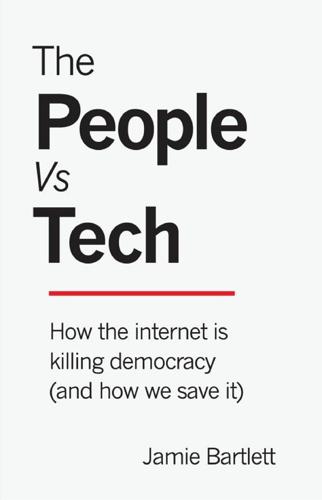
The People vs Tech: How the Internet Is Killing Democracy (And How We Save It)
by
Jamie Bartlett
Published 4 Apr 2018
Both are in the top ten most influential organisations as measured by the number of high-level lobby meetings with the European Commission. Google has met with representatives from the Commission from nearly every portfolio, including agriculture and humanitarian aid. Uber has increased its lobby spending sevenfold since 2015, although from a low base.” See also Andrew Keen, How to Fix the Future (Atlantic, 2018), p.69. 5 Hamza Shaban, ‘Google for the first time outspent every other company to influence Washington in 2017’, Washington Post, 23 January 2018. 6 Matt Burgess, ‘Google’s DeepMind trains AI to cut its energy bills by 40%’, www.wired.com, 20 July 2016. 7 Synced, ‘Tech Giants Are Gobbling Up AI Startups’, www.medium.com, 4 January 2017.
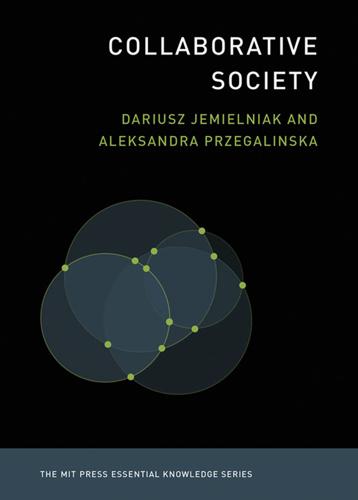
Collaborative Society
by
Dariusz Jemielniak
and
Aleksandra Przegalinska
Published 18 Feb 2020
The process of collaborative media production, sometimes called commons-based peer production (or consumer co-production), results in a radical redefinition of many professions and industries outside of knowledge or software production. The Cult of the Amateur, the Demise of the Pro The decline in demand for a highly trained, skilled workforce is sometimes blamed for lowering the overall quality of outcomes in any number of fields. In media, Andrew Keen laments the demise of professionally generated content resulting from what he calls “the cult of the amateur,” and he predicts a decline of our culture and economy resulting from the popularity of user-generated media.15 In Keen’s view, the oversupply of amateur content diminishes the financial viability for professionals to stay in business: nearly all content is free or almost free, and the costs of production no longer accommodate for the fact that the author has to make a living.

Survival of the Richest: Escape Fantasies of the Tech Billionaires
by
Douglas Rushkoff
Published 7 Sep 2022
While they may be crying all the way to the bank, these millionaire turncoats do a good job of explaining how their platforms surveilled users and then leveraged the information they collected to turn people into more extreme versions of themselves. Of course, most of them were making arguments lifted from the works of people like Sherry Turkle, Cliff Nass, Howard Rheingold, Andrew Keen, Evgeny Morozov, Astra Taylor, Richard Barbrook, Jerry Mander, Cory Doctorow, Marina Gorbis, dana boyd, Nick Carr, Mark Bauerlain, and even Raffi. Tech critics have been writing about the impact of social media manipulation on our psyche and society for decades. It’s great that the developers responsible for these misdeeds are finally agreeing with these assessments, even if they need to feel as if they’ve discovered the downsides all by themselves—like brand-new intellectual property.
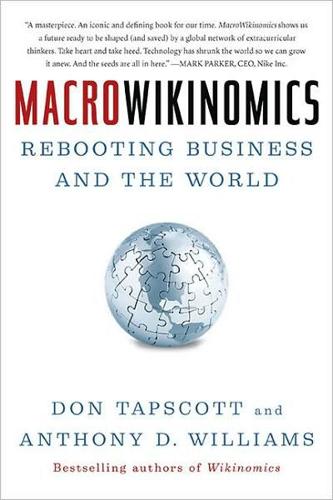
MacroWikinomics: Rebooting Business and the World
by
Don Tapscott
and
Anthony D. Williams
Published 28 Sep 2010
For some, “citizen journalism” is an oxymoron, right up there with military music and jumbo shrimp. They pine for the old days when the major papers determined what news was “fit to print” and millions of readers trusted their judgment. Now via the Internet you get “all the news” whether it’s fit to print or not. And for skeptics like Andrew Keen this democratization creates a problem, namely a vast heap of mediocrity that crowds out the good stuff and confuses consumers. In his book The Cult of the Amateur: How Today’s Internet Is Killing Our Culture, Keen argues that user-generated content is destroying journalism and, for that matter, society.
…
Many bloggers (28 percent) are now professionals in that they make a living from blogging. They are professional in another sense too: 40 percent of these commercial bloggers have worked within traditional media.34 They have formal journalism experience, training, and credentials. This fact undermines the critique of Andrew Keen. Rather than professionals being displaced by rank amateurs, it turns out the professionals are simply shifting employers—from the mainstream media to new media, self-employment, and new entrepreneurial journalistic ventures. Moreover, when it comes to the so-called balance of the mainstream media it is all too easy to get misty-eyed and think that the news that was “fit to print” was only determined by some lofty standard.
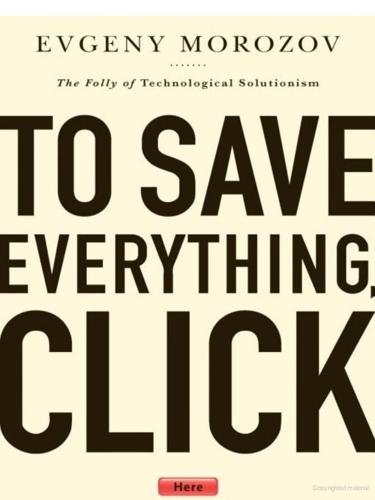
To Save Everything, Click Here: The Folly of Technological Solutionism
by
Evgeny Morozov
Published 15 Nov 2013
Of course, if one’s knowledge of history is reduced to tweet-length CliffsNotes, it’s natural to feel triumphant and unique, to believe one is living in truly exceptional times—an intellectual fallacy I call “epochalism.” It’s not a preserve of Internet optimists only; the pessimists love epochalism as well. After all, their criticisms matter only if the phenomena they are criticizing are seen as unprecedented. Thus, a self-proclaimed Internet pessimist like Andrew Keen can proclaim starkly that the growth of social media is “the most wrenching cultural transformation since the Industrial Revolution” without bothering to produce much evidence. Keen simply presumes that the unprecedented scale of today’s transformations is self-evident—a hallmark assumption of epochalism.
…
Sol Schwimmer is suing me”: Woody Allen, The Complete Prose of Woody Allen (New York: Wings Books, 1991), 105. 35 “when we think of information technology”: David Edgerton, Shock of the Old: Technology and Global History Since 1900 (London: Profile Books, 2011), xvi. 36 “the most wrenching cultural transformation since the Industrial Revolution”: “‘Antichrist of Silicon Valley,’ Andrew Keen Wary of Online Content Sharing,” Economic Times, May 29, 2012. 37 they don’t always capture the historical complexity: on the longitude problem, see Dava Sobel’s accessible history Longitude: The True Story of a Lone Genius Who Solved the Greatest Scientific Problem of His Time, reprint ed. (New York: Walker & Company, 2007).
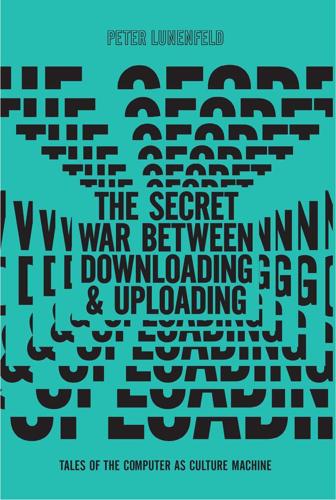
The Secret War Between Downloading and Uploading: Tales of the Computer as Culture Machine
by
Peter Lunenfeld
Published 31 Mar 2011
Williams’s point was that contrary to what viewers thought, they were not spectators watching shows but were instead eyeballs being sold to advertisers. Raymond Williams, Television: Technology and Cultural Form (New York: Schocken Books, 1975). 13 . Fredric Wertham, Seduction of the Innocent (1953; repr., Laurel, NY: Main Road Books, 2001); Jerry Mander, Four Arguments for the Elimination of Television (New York: Harper Perennial, 1978); Andrew Keen, The Cult of the Amateur: How Today’s Internet Is Killing Our Culture (New York: Doubleday, 2007); Lee Siegel, Against the Machine: Being Human in the Age of the Electronic Mob (New York: Spiegel and Grau, 2008); Maggie Jackson, Distracted: The Erosion of Attention and the Coming Dark Age (Amherst, NY: Prometheus Books, 2008). 14 .
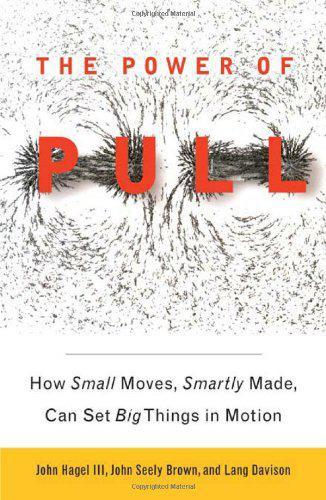
The Power of Pull: How Small Moves, Smartly Made, Can Set Big Things in Motion
by
John Hagel Iii
and
John Seely Brown
Published 12 Apr 2010
Chapter 5 1 Ellen Levy, interview with authors, September 20, 2009. 2 Ibid. 3 Ibid. 4 For more about how monetizing intangible assets drives corporate wealth creation, see Lowell Bryan and Claudia Joyce, Mobilizing Minds (New York: McGraw-Hill, 2007). 5 See John Hagel III, John Seely Brown, and Lang Davison, The 2009 Shift Index: Measuring the Forces of Long-Term Change (San Jose, Calif.: Deloitte Development, June 2009). 6 Andrew Keen, The Cult of the Amateur: How Today’s Internet Is Killing Our Culture (New York: Broadway Business, 2007). 7 Ian Millhiser, “Clarence Thomas’s America,” Huffington Post, April 14, 2009, http://www.huffingtonpost.com/ian-millhiser/clarence-thomas-america_b_186425.html. 8 Clay Shirky, “Newspapers and Thinking the Unthinkable,” blog posting, March 13, 2009, http://www.shirky.com/weblog/2009/03/newspapers-and-thinking-the-unthinkable/. 9 Matthew B.
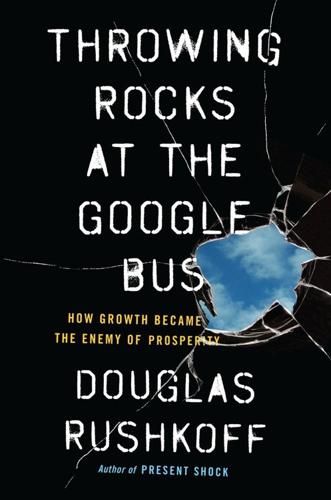
Throwing Rocks at the Google Bus: How Growth Became the Enemy of Prosperity
by
Douglas Rushkoff
Published 1 Mar 2016
Ron Miller, “An Uber Valuation Comes with Uber Problems,” techcrunch.com, December 16, 2014. 39. “Organization: Uber,” www.crunchbase.com/organization/uber. 40. Moshe Z. Marvit, “How Crowdworkers Became the Ghosts in the Digital Machine,” thenation.com, February 4, 2014. 41. Trebor Scholz, “Crowdmilking,” collectivate.net, March 9, 2014. 42. Andrew Keen, The Internet Is Not the Answer (New York: Atlantic Monthly Press, 2015). 43. Vivek Wadhwa, “The End of Chinese Manufacturing and Rebirth of U.S. Industry,” forbes.com, July 23, 2012. 44. Daniel Bell, The Coming of Post-Industrial Society: A Venture in Social Forecasting (New York: Basic Books, 1976). 45.
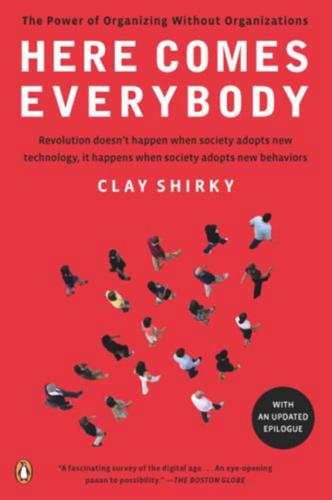
Here Comes Everybody: The Power of Organizing Without Organizations
by
Clay Shirky
Published 28 Feb 2008
This is the effect felt by media outlets challenged by mass amateurization. The basic problem of copying and distributing information, previously an essential service of the music and newspaper industries among others, is now largely solved thanks to digital networks, undermining the commercial logic of many industries that relied on previous inefficiencies. Andrew Keen, in Cult of the Amateur, describes a firm that ran a $50,000 campaign to solicit user-generated ads. Keen notes that some professional advertising agency therefore missed out on hundreds of thousands of dollars in fees. This loss is obviously a hardship for the ad agency employees, but were they really worth the money in the first place if amateurs working in their spare time can create something the client is satisfied with?
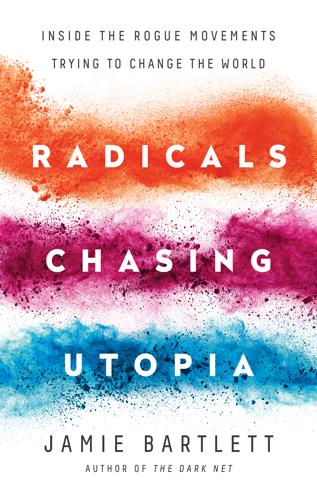
Radicals Chasing Utopia: Inside the Rogue Movements Trying to Change the World
by
Jamie Bartlett
Published 12 Jun 2017
Peter Holley, ‘Bill Gates on dangers of artificial intelligence: “I don’t understand why some people are not concerned”‘, Washington Post, 2015, https://www.washingtonpost.com/news/the-switch/wp/2015/01/28/bill-gates-on-dangers-of-artificial-intelligence-dont-understand-why-some-people-are-not-concerned/; Peter Holley, ‘Stephen Hawking just got an artificial intelligence upgrade, but still thinks AI could bring an end to mankind’, Washington Post, 2014, https://www.washingtonpost.com/news/speaking-of-science/wp/2014/12/02/stephen-hawking-just-got-an-artificial-intelligence-upgrade-but-still-thinks-it-could-bring-an-end-to-mankind/; Derek Thompson, ‘A world without work’, Atlantic, 2015, http://www.theatlantic.com/magazine/archive/2015/07/world-without-work/395294/; Andrew Keen, The Internet Is Not the Answer (Atlantic, 2015); Brian Resnick, ‘Why Stephen Hawking is more afraid of capitalism than robots’, Vox.com, 2016, http://www.vox.com/2016/2/27/11119804/stephen-hawking-robots; Matthew Yglesias, ‘The automation myth’, Vox.com, 2015, http://www.vox.com/2015/7/27/9038829/automation-myth. 30.
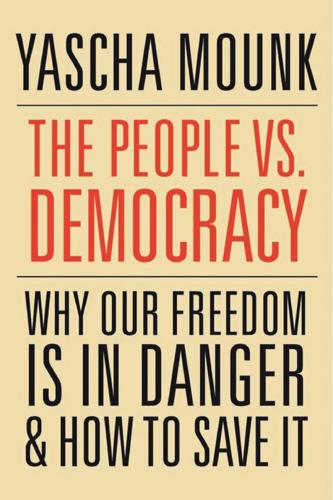
The People vs. Democracy: Why Our Freedom Is in Danger and How to Save It
by
Yascha Mounk
Published 15 Feb 2018
On “one-to-many communication,” see also Lucien Febvre and Henri-Jean Martin, The Coming of the Book: The Impact of Printing 1450–1800 (New York: Verso, 1976) and Clay Shirky, Here Comes Everybody: The Power of Organizing without Organizations (New York: Penguin, 2008). 2. Further to Eisenstein as well as to Febvre and Martin, see Jeremiah E. Dittmar, “Information Technology and Economic Change: The Impact of the Printing Press,” Quarterly Journal of Economics 126, no. 3 (2011): 1133–1172. 3. Andrew Keen, “Can the Internet Save the Book?” Salon, July 9, 2010, http://www.salon.com/2010/07/09/clay_shirky/. 4. Helen Waters, “Entering the Second Age of Enlightenment: Heather Brooke at TEDGlobal 2012,” TEDblog, June 28, 2012, http://blog.ted.com/entering-the-second-age-of-enlightenment-heather-brooke-at-tedglobal-2012/. 5.
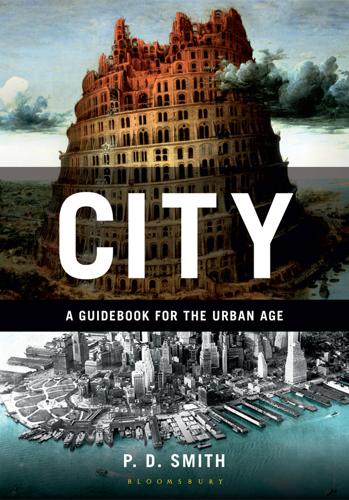
City: A Guidebook for the Urban Age
by
P. D. Smith
Published 19 Jun 2012
I am very grateful to the Department of Science and Technology Studies at University College London for making me an Honorary Research Associate, a privilege that allows me to use the excellent libraries of the University of London. Many people have been kind enough to offer information and advice during the writing of City, mostly via the dangerously distracting medium of Twitter. They include: Paul Bishop, Lewis Crofts, Steven Hall, Paul Halpern, Andrew Keen, Crystal Koo, Geoff Manaugh, Angela Meyer, Oli Mould, Maria Popova, Aaron M. Renn, Thomas Riepe, Jim Rossignol, Simon Sellars, Joel Toombs, Jon Turney, Will Wiles and Cindy Frewen Wuellner. Thanks to all of you. A note on the author P. D. Smith is an independent researcher and writer.
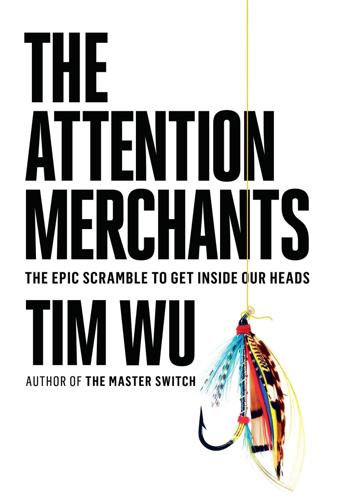
The Attention Merchants: The Epic Scramble to Get Inside Our Heads
by
Tim Wu
Published 14 May 2016
Lev Grossman, “You—Yes, You—Are TIME’s Person of the Year,” Time, December 25, 2006, http://content.time.com/time/magazine/article/0,9171,1570810,00.html. 13. Jon Pareles, “2006, Brought to You by You,” New York Times, December 10, 2006, http://www.nytimes.com/2006/12/10/arts/music/10pare.html?pagewanted=print. 14. See Andrew Keen, The Cult of the Amateur: How Today’s Internet Is Killing Our Culture (New York: Doubleday, 2007). 15. See Greg Miller, “Turn On, Boot Up, and Jack In with Timothy Leary’s Long-Lost Video Games,” Wired, October 1, 2013, http://www.wired.com/2013/10/timothy-leary-video-games/. 16. C. W. Nevius interviewed Dave Barry after Barry came to speak at the Commonwealth Club in San Francisco.
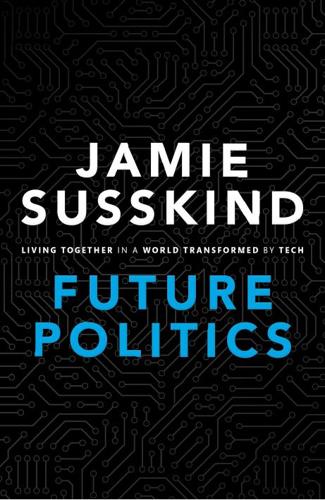
Future Politics: Living Together in a World Transformed by Tech
by
Jamie Susskind
Published 3 Sep 2018
See Rob Kitchin, The Data Revolution: Big Data, Open Data, Data Infrastructures and their Consequences (London: Sage Publications Ltd, 2014), 83. 5. David Rose, Enchanted Objects: Design, Human Desire, and the Internet of Things (New York: Scribner, 2014), 7. 6. Adam Greenfield, Everyware: The Dawning Age of Ubiquitous Computing (Berkley: New Riders, 2006). 7. Andrew Keen, The Internet is Not the Answer (London: Atlantic Books, 2015), 13; Richard Susskind and Daniel Susskind, The Future of the Professions: How Technology Will Transform the Work of Human Experts OUP CORRECTED PROOF – FINAL, 30/05/18, SPi РЕЛИЗ ПОДГОТОВИЛА ГРУППА "What's News" VK.COM/WSNWS Notes 8. 9. 10. 11. 12. 13. 14. 15. 16. 17. 18. 377 (Oxford: Oxford University Press, 2015), 175; Gartner Newsroom, ‘Gartner Says By 2020, a Quarter Billion Connected Vehicles Will Enable New In-vehicle Services and Automated Driving Capabilities’, Gartner, 26 January 2015 <http://www.gartner.com/newsroom/ id/2970017> (accessed 30 November 2017).
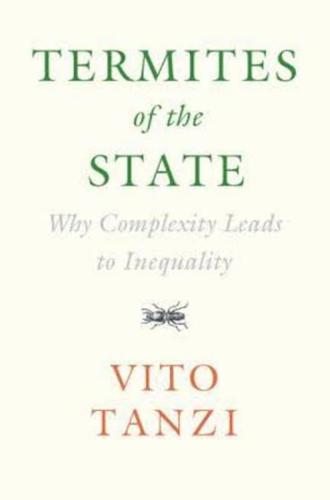
Termites of the State: Why Complexity Leads to Inequality
by
Vito Tanzi
Published 28 Dec 2017
A more interesting and more modern example comes from the story behind the development and the use of the Internet. It is also in part the story behind the creation of many intellectual property rights, rights that are at the base of some of the largest incomes and fortunes in today’s world. The Internet story has been told in a recent book by Andrew Keen (2015), 326 Termites of the State who pointed out that the Internet has been associated with, perhaps, the greatest creation of private wealth in the world Intellectual property, often linked to the use of the Internet, has allowed some “owners” of that property, such as Zuckerberg and Gates, to become billionaires many times over, while the basic infrastructure (the Internet) has been funded with public money and has had specific public goals in mind.
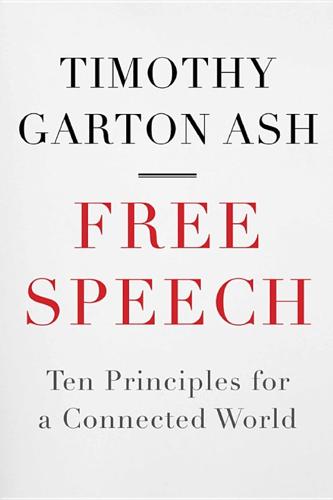
Free Speech: Ten Principles for a Connected World
by
Timothy Garton Ash
Published 23 May 2016
He went on to write a book called Computer Power and Human Reason which argued that the limits to what we expect of computers should be ethical rather than technological or mathematical: ‘since we do not now have any ways of making computers wise, we ought not now to give computers tasks that demand wisdom’.90 In the meantime, there has emerged a small school of cybersceptics, reacting against the cyberutopianism of Silicon Valley and the technological determinism that often underpins it. There is, they point out, a vast ocean of rubbish, nonsense and lies online. (A similar complaint was made after the spread of printing in sixteenth-century Europe.) Nicholas Carr and Andrew Keen deplore the online ‘cult of the amateur’, which inordinately privileges mass participation over authority, openness over expertise, Wikipedia over Britannica.91 And the former, they argue, is eroding the latter. Jaron Lanier writes caustically of colleagues who believe that ‘a million, or perhaps a billion, fragmentary insults will eventually yield wisdom’.92 As we are tempted into what Nicholas Carr calls ‘the shallows’ of the online world, so we might all succumb to attention deficit disorder.
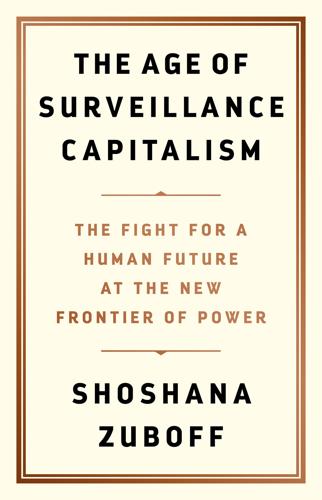
The Age of Surveillance Capitalism
by
Shoshana Zuboff
Published 15 Jan 2019
—Chris Hoofnagle, University of California, Berkeley “A panoramic exploration of one of the most urgent issues of our times, Zuboff reinterprets contemporary capitalism through the prism of the digital revolution, producing a book of immense ambition and erudition. Zuboff is one of our most prescient and profound thinkers on the rise of the digital. In an age of inane Twitter soundbites and narcissistic Facebook posts, Zuboff’s serious scholarship is great cause for celebration.” —Andrew Keen, author of How to Fix the Future “From the very first page I was consumed with an overwhelming imperative: everyone needs to read this book as an act of digital self-defense. With tremendous lucidity and moral courage, Zuboff demonstrates not only how our minds are being mined for data but also how they are being rapidly and radically changed in the process.